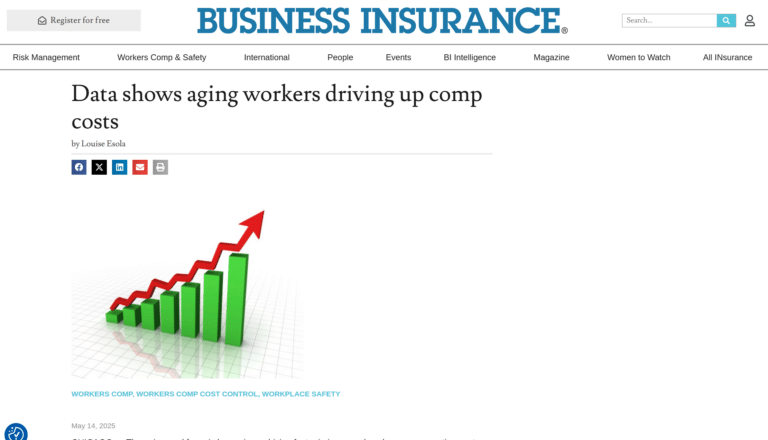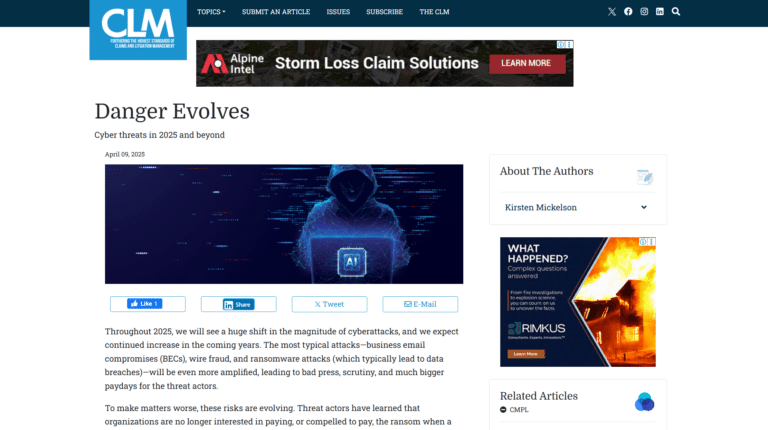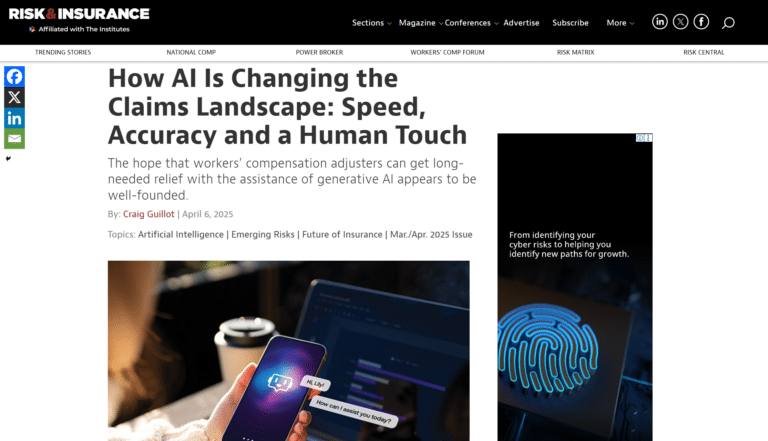The transportation industry plays a crucial role in global commerce, so it has to constantly adapt to technological advancements, economic fluctuations, and shifting consumer demands. However, clients that have transportation exposure face increasing pressures due to supply chain challenges and regulatory scrutiny, making effective risk management more important than ever.
Telematics has emerged as a vital tool in this regard by helping to navigate automotive claim complexities, optimize claims results, and enhance customer satisfaction. Doug Betkowski, SVP — Transportation Practice Leader at Gallagher Bassett, Amy O’Brien, VP — Carrier Practice Sales, and Mark Gallagher, VP of National Transportation at Risk Placement Services, join us to share their expertise on how carriers can leverage telematics to improve claims outcomes.
Doug Betkowski (DB): Telematics has revolutionized the automotive sector by combining GPS technology and onboard diagnostics to transform vehicle monitoring and management. It has become an integral part of modern vehicles because it enables real-time tracking, data collection, and connectivity. Additionally, telematics assist in driver integration and improved performance through positive feedback and rewards for adhering to organizational safety goals. Let’s start with how telematics has recalibrated the transportation sector.
Mark Gallagher (MG): In transportation, fleet clients were the first group to embrace, utilize, and implement telematics as a core technology, and they did this on a much wider scale than the owner/operator segment. The first offerings were certainly a costly investment, but fleet owners and safety directors quickly found them to be very effective. From there, we saw more adoption within the industry, with companies implementing telematics on a trial basis.
Amy O’Brien (AO): Today, we expect that fleets have telematics installed. When we look at newly developing transportation programs, we find our program partners either require installation (if not already in place) with verification that was completed or upgrades to current systems, and expect that the data output will be available for consideration in the claims adjudication process. As the outsourced claims department, we find it extremely useful to have access to the data points and camera footage.
DB: While there are various benefits for automotive organizations, telematics is regarded as a game-changer for clients to optimize operations, enhance safety, and, crucially, streamline claims outcomes. With the ability to track and record valuable data, such as speed, location, and other relevant metrics, telematics offers clients a comprehensive view of fleet operations and enables insurance providers to make informed decisions in case of accidents or adverse events. So, to effectively harness this data, clients should focus on leveraging telematics throughout the claims process.
What are some of the key areas where telematics can make a significant impact?
DB: There are four key areas where telematics can make a core difference in a claims journey. Firstly, prevention and risk management. By leveraging electronic logging device (ELD) data, clients with transportation exposure are empowered with insights to advise transportation customers and mitigate risks. Using the various data points made available by telematics, organizations can instruct clients to address risky driving behaviors, inform clients of routes to limit accident susceptibility, and benchmark themselves against industry competitors. As a result, clients can lower their total cost of risk (TCOR) and exceed customer expectations.
The second area concerns rapid response capabilities. Promptly collecting information and initiating a rapid response after an accident is crucial. Telematics data can provide immediate insights into the accident’s location, the involved parties, and the conditions of the vehicles. This enables partners to assemble the necessary team, including independent adjusters, accident reconstruction experts, and defense counsel, thus ensuring a swift and coordinated response to the incident.
Finally, it’s important to combine data insights with specialist claims experts. When analyzing a claim, transportation claims specialists will often refer to a checklist of questions that a claims generalist might not ask. At all times, maintaining good housekeeping of the vehicle’s data ensures that, in the event of an accident, clients can swiftly move through the claims specialist’s checklist, which expedites the investigation and streamlines the resolution.
AO: Gallagher Bassett’s (GB) resolution managers and our Major Case Unit (MCU) benefit from these data insights. The use of dash cams and other cameras in vehicles are the first line of defense in our claims handling. They can show who had a stop sign or the color of a light at an intersection before the moment of impact. Newer cameras can even show miles per hour (MPH) at impact. We gather this information immediately upon notice of an occurrence and preserve it. The content of the video allows us to immediately assess culpability. If it reflects a liability situation, we can quickly communicate with the other parties to minimize the severity, expense, and cycle time of the claim. When video collected reflects a driver is not at fault, we can marshal additional resources to support that evidence and preserve it for defense. Often times video that reflects a driver did nothing wrong is shared with the opposing parties and results in alleged claims being dropped.
On a more technical side, the ability to pull the engine control module (ECM) data on claims can be vital to defense. Using ECM data can show at what point a vehicle was braking, and with how much force, and at what speed the vehicle was traveling. Furthermore, if the weight and other metrics of the tractor and trailer are factored in, it can help prove whether a vehicle could have stopped in time or that defensive maneuvers were taken, which can assist in countering punitive damage claims.
DB: The prevention of exorbitant jury verdicts is also an area that can be positively influenced by telematics. We know that accidents that involve large trucks or commercial vehicles can be particularly complex and result in severe financial damage. These verdicts often have increasingly high settlement amounts that can have severe financial implications for carriers. Telematics acts as a powerful tool to avoid such outcomes by providing objective and irrefutable evidence that helps establish and allocate liability. By leveraging telematics data, carriers can effectively address potential issues, identify areas for improvement, and mitigate risks before they escalate.
MG: I’m thinking about what’s next for telematics and what the future of this space could look like for claims professionals. As an industry, we have made great progress in promoting the importance of telematics for streamlining and optimizing claims outcomes, and telematics has gained popularity over the last three to five years. That said, there is a long way to go to get everyone on board, but we believe we will continue to see a large step forward over the next few years. In all segments of transportation, the more surveillance and telematics are implemented, the more we’ll see that data being shared with insurance carrier partners.
AO: Continued advancements in telematics will assist our claims teams in the adjudication process, while also improving the insured’s outcomes and the profitability of our program partners. At the same time, it will also benefit the drivers that we rely upon. The ongoing driver shortage will create an opportunity for less experienced drivers to enter the industry. The data from telematics can hopefully impress better, safer driving habits on those new to the industry, which will ultimately help prevent claims.
DB: By combining innovative telematics data with a specialty claims partner, clients can make well-informed decisions regarding evidence preservation, data collection, and claims management. Engaging the right expertise is essential to ensure compliance with legal obligations, maximize the value of telematics data, and enhance risk management.
To learn how we can support you by streamlining claims outcomes and offering specialist advice on transportation claims, contact our team today.






